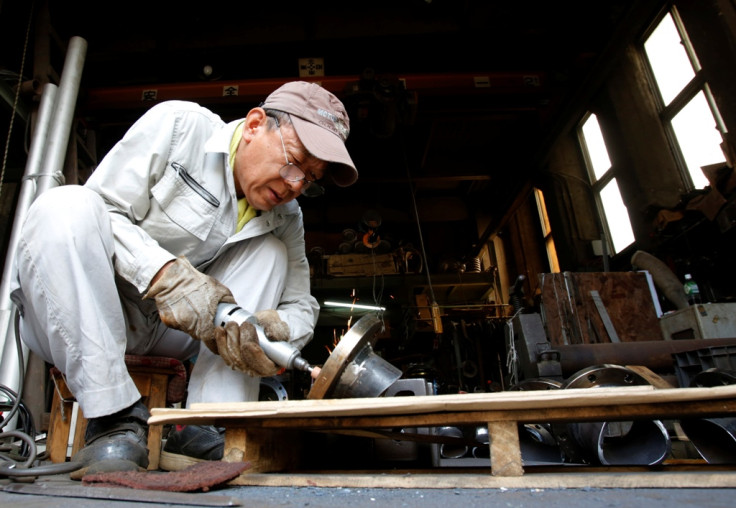Japanese Job Market at Risk of Overheating Says JPMorgan Economist

A labour shortage in Japan is forcing businesses to hike wages to the extent that the country's job market could become "overheated" in the next few years, according to economists at JPMorgan.
Higher wages would support household spending power, amid rising prices, in the world's third-largest economy - a lower purchasing power would impact consumer spending, threatening to disrupt Prime Minister Shinzo Abe's efforts to pull the Japanese economy out of weak growth.
However, the nation is within a few years of an overheated job market that makes inflation, not deflation, Japan's challenge, said JPMorgan economist Masaaki Kanno.
Employee's Market
Tomoyuki Nishio, chief executive at Nishio Glass & Mirror, which makes display counters, said he could not hire anyone unless he offered higher wages, following a drop in the number of job applicants.
Tempstaff, Japan's largest temporary staffing solutions firm by revenue, has witnessed a surge in demand from companies for clerical workers, especially in the finance, construction and information technology industries, according to spokeswoman Kiyoko Nakamata.
The agency proposes to boost the fees it charges clients, for the temporary workers, by 3% to 5%.
The number of graduates entering the job-search market in the private sector hovers at a 13-year low of 425,700 in the year through this month, according to Recruit Works Institute.
"I will increase pay even more this year if business continues to improve," Nishio, whose Tokyo-based firms caters to Gucci, Chanel and Coach, told Bloomberg.
"By 2017, the focus of the argument will shift to how to contain inflation -- once the fire is set, it spreads really quickly," said Kanno, JPM's chief Japan economist in Tokyo, who previously worked at the country's central bank.
"In two or three years, the wage increases will be more remarkable due to the labor market heating up," Kanno told the news agency.
A "widening employment gap" would sustain wage gains, which could start exceeding inflation as soon as next year, Daiju Aoki, a UBS economist in Tokyo said in a 28 February note to clients.
Inflation Target
Bank of Japan (BOJ) Governor Haruhiko Kuroda said earlier in February that Japan would witness 2% inflation around the second half of fiscal 2014 through early fiscal 2015.
Kuroda's statement came a day after the Japanese Nikkei share average dropped nearly 2% and entered "technical correction" - defined as a drop of 10% or more from the preceding peak.
The Nikkei's drop, on 3 February, came as investors digested corporate earnings data amid reports of slowing economic growth in China.
Japan's labour force declined to 65 million in January 2014 from a high of 69 million in June 1997, led by younger workers. Those aged 15 to 24 plunged to 4.9 million from 8.9 million over the same period, government data showed.
Both BOJ and Goldman Sachs have asked Japanese business leaders to increase wages, with the investment banking major warning that wages ought to increase for "Abenomics" to succeed.
© Copyright IBTimes 2025. All rights reserved.






















